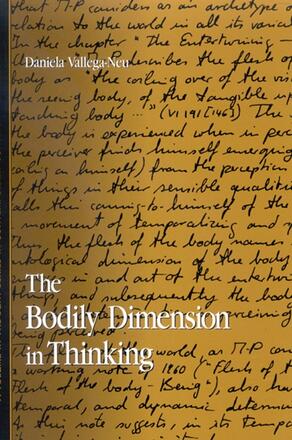
The Bodily Dimension in Thinking
Alternative formats available from:
An ontology of bodily being featuring Plato, Nietzsche, Scheler, Merleau-Ponty, Heidegger, and Foucault.
Description
Daniela Vallega-Neu questions the ontological meaning of body and thinking by carefully taking into account how we come to experience thought bodily. She engages six prominent figures of the Western philosophical tradition—Plato, Nietzsche, Scheler, Merleau-Ponty, Heidegger, and Foucault—and considers how they understand thinking to occur in relation to the body as well as how their thinking is itself bodily. Through a deconstructive and performative reading, she explores how their thinking reveals a bodily dimension that is prior to what classical metaphysics comes to conceive as mind-body duality. Thus, Vallega-Neu uncovers the bodily dimension that sustains their thought and their work. As she contends, the trace of the body in our thought not only exposes the strangers we are to ourselves, but may also lead to a new understanding of how we come to be who we are in relation to the world we live in.
Daniela Vallega-Neu is Associate Professor of Philosophy at California State University at Stanislaus and the author of Heidegger's Contributions to Philosophy: An Introduction.